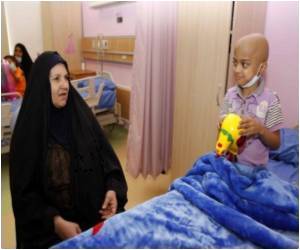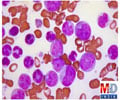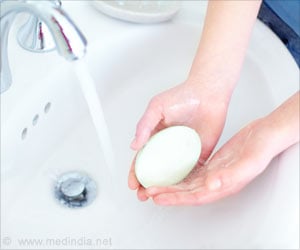Iraq's first specialist cancer hospital for children could not have opened in a needier location -- since 1993, Basra province has seen a sharp rise in the incidence of childhood cancer.

"Most are high-risk cases, which means that they do not have a high survival rate," she told AFP on the sidelines of the opening ceremony, where hapless parents with sick children in tow, many with the tell-tale baldness of chemotherapy, clustered around the paediatrician.
The facility, which was built with multinational assistance and funds, officially opened on Thursday but has been partially operational for several months, Hasan said.
"This hospital is a very important achievement, and I thank everyone who helped build it," she said.
"This is a very good effort, but we still do not have advanced equipment, labs and many medicines. We hope to acquire them over time."
Three-year-old Muntadhar, his green eyes staring dolefully from his mother's arms, is one of the patients the hospital cannot help because it does not have the equipment.
Advertisement
"We took him to Iran a few months ago and they cut him open to try to help him," she said, lifting his orange Mickey Mouse T-shirt to reveal a deep scar across his belly.
Halima Mukhtar, draped in a loose black veil that showed her traditionally tattooed face and hands, carried her four-year-old son Musa on her right shoulder.
"Thank God for this hospital, otherwise I wouldn't know where else to turn," she said, a bottle of medicine in one hand.
"In this world I have only God and the people at this hospital," she added," as Musa, wearing flip-flops on his feet and a surgeon's mask that covered most of his face, stared down blankly from his perch.
Hasan said the increasing cases of cancer in Basra were best documented in a study published this year by the University of Washington in Seattle, conducted with input from her and the Ibn Ghazwan teaching hospital.
The report found leukaemia in Basra among children under 15 had grown year to year from 1993-2007.
"We observed 698 cases of childhood leukaemia between 1993 and 2007, ranging between 15 cases in the first year and 56 cases in the final year, reaching a peak of 97 cases in 2006," said the study, authored by Amy Hagopian and Tim Takaro, and published in the American Journal of Public Health.
"Basra's childhood leukemia rates compare unfavourably to those of neighbouring Kuwait and nearby Oman, as well as the US and the European Union and other countries," the study said.
"The incidence of cancer is significantly higher in Basra province than in other parts of Iraq," said Mohammed Kamil, deputy director of the hospital.
Speculation has focused on industrial pollution, the huge volumes of burning gas from oil wells in the energy-rich province, and Basra's position in the frontline of wars in past three decades: the 1980-1988 conflict with Iran, the 1991 Gulf War and the US-led invasion that overthrew dictator Saddam Hussein.
"We hypothesise that hazardous exposures during these wars may have been leukaemogenic," said the Hagopian-Takaro study.
What weapons were actually used in those wars, and by Saddam himself against his own people to put down a 1991 Shiite uprising in the south, is anyone's guess.
Some of the conjecture has centred on depleted uranium weapons used by US and coalition forces in the 1991 war to liberate Kuwait and the 2003 US-led invasion.
But in Iraq the possible link between the radioactive metal and health problems has not been proven.
The hospital, decorated with portraits of Donald Duck and Mickey Mouse prancing about with his girlfriend Minnie, was built with help from the United States, Spain, Oman, the United Arab Emirates, the UN Development Programme and Project Hope.
"This project will have a capability to serve the people of Iraq and its people and children of Iraq for many years to come," said Brigadier-General Randal Dragon, Deputy Commander for Support of the US army base in Basra.
"From that perspective, all of us should be proud and hope this project will pay big dividends," he told AFP.
Source-AFP











